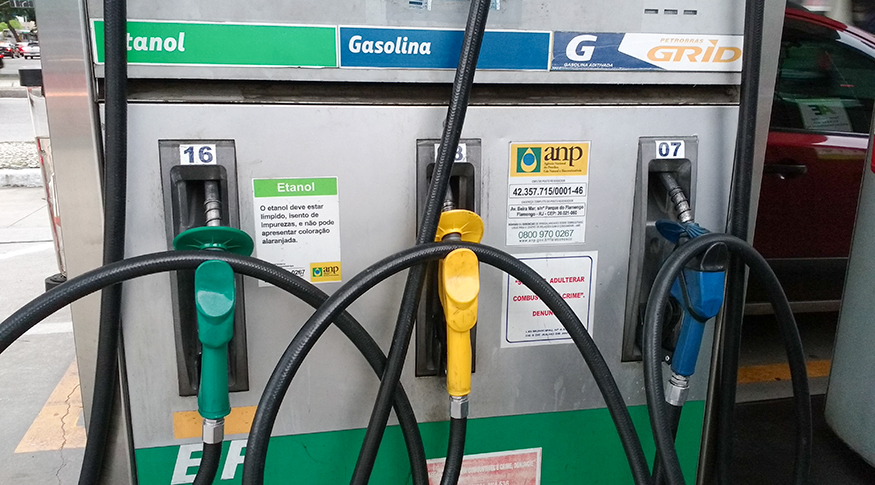Inflaltion
After two months of deflation in a row, IPCA increases 0.26% in June
July 10, 2020 09h00 AM | Last Updated: July 13, 2020 09h55 AM

After two consecutive months of deflation, prices in the country rose again and registered a 0.26% increase in June, according to the Extented National Consumer Price Index (IPCA), published today (10) by the IBGE. The rate was influenced by the increase in fuel prices after reductions in the last four months, especially gasoline, which had the greatest individual impact (0.14 p.p.), with an increase of 3.24%.
After the two consecutive declines (0.31% and 0.38% in April and May, respectively) and with the increase in June, the IPCA accumulated an increase of 0.10% in the year and 2.13% in 12 months.
Of the nine groups of products and services surveyed, seven increased in the month. Transport was the second largest contribution (0.06 p.p.), with prices that rose 0.31%, but that came from four consecutive months of decline. “There was an increase in fuel prices that reached the pumps and impacted the final consumer. This changed the Transportation group and influenced the IPCA ”, explains Pedro Kislanov, the survey manager.
Ethanol (5.74%), vehicular gas (1.01%) and diesel oil (0.04%) increased, leading fuel prices to rise 3.37%, compared to the -4.56% change recorded in May.
Among the falls in the Transportation group, the highlights were airfares (-26.01%), which showed a similar chnge to that observed in May (-27.14%) and contributed with the greatest negative individual impact on the June's IPCA ( -0.11 pp). In addition, the item transportation app, after rising 5.01% in May, recorded a -13.95% change. The result of the sub-item subway (1.43%) reflects the adjustment of 8.70% in tickets in Rio de Janeiro (5.22%), in effect since June 11, while the fall in the sub-item taxi (-0.35 %), in turn, results from the cancellation, as of May 22, of the adjustment that occurred in Rio de Janeiro (-1.64%) in January.
Food up once again
The group with the greatest impact on June's IPCA result was Food and beverages (0.38%), which increased in relation to the May result (0.24%). This set of items, however, were already on the rise, which is partly linked to the high demand during the Covid-19 pandemic.
“The social isolation measures, which made people cook more at home, for example, are still in place in many areas of the country. This generates a demand effect and keeps prices at a higher level ”, explains Mr. Kislanov. An example is the item food at home, which went from 0.33% in May to 0.45% in June, mainly influenced by the high prices of meat (1.19%) and long life milk (2.33%).
Other important items in the household consumption basket, such as rice (2.74%), carioca beans (4.96%) and cheese (2.48%) also registered an increase. Among the falls of the group, the highlights were tomatoes (-15.04%) and carrots (-8.88%), whose prices had already fallen in May (-7.34% and -14.95%, respectively ).
Also in this group, the highlight was food away from home, which accelerated from May (0.04%) to June (0.22%), especially due to the snack item (1.01%). Meals (-0.07%), in turn, showed a less intense decrease compared to May (-0.34%).
The group that registered the biggest positive change in the June IPCA was Household items (1.30%), due to the increase in household appliances and equipment (2.92%) and TV, sound and computer items (3.80%). "The high dollar puts pressure on the prices of these products," explains Mr. Kislanov. In this group, furniture items (-1.33%) continue to fall, although thechange was less intense than that observed in May (-3.17%).
The Health and personal care group (0.35%) also showed a relevant increase for the IPCA in June. Among the falls, the highlight was the change in Apparel (-0.46%), which contributed with -0.02 p.p. in the June index. The other groups were between the 0.05% drop in Personal Expenses and the 0.75% increase registered in the Communication sector.
Regarding the regional indexes, four of the 16 areas surveyed showed deflation in June, the lowest index for the municipality of São Luís (-0.35%) and the highest registered in the metropolitan area of Curitiba (0.80%).
Because of the public health emergency situation caused by Covid-19, on March 18, the IBGE suspended the face-to-face price collection at the places of purchase. From that date, prices began being collected by other means, such as surveys carried out on Internet websites, by telephone or by e-mail. In order to calculate the index for the month of June, the prices collected in the period from May 29 to June 30, 2020 (reference) were compared with those in force from April 30 to May 28, 2020 (base).




















